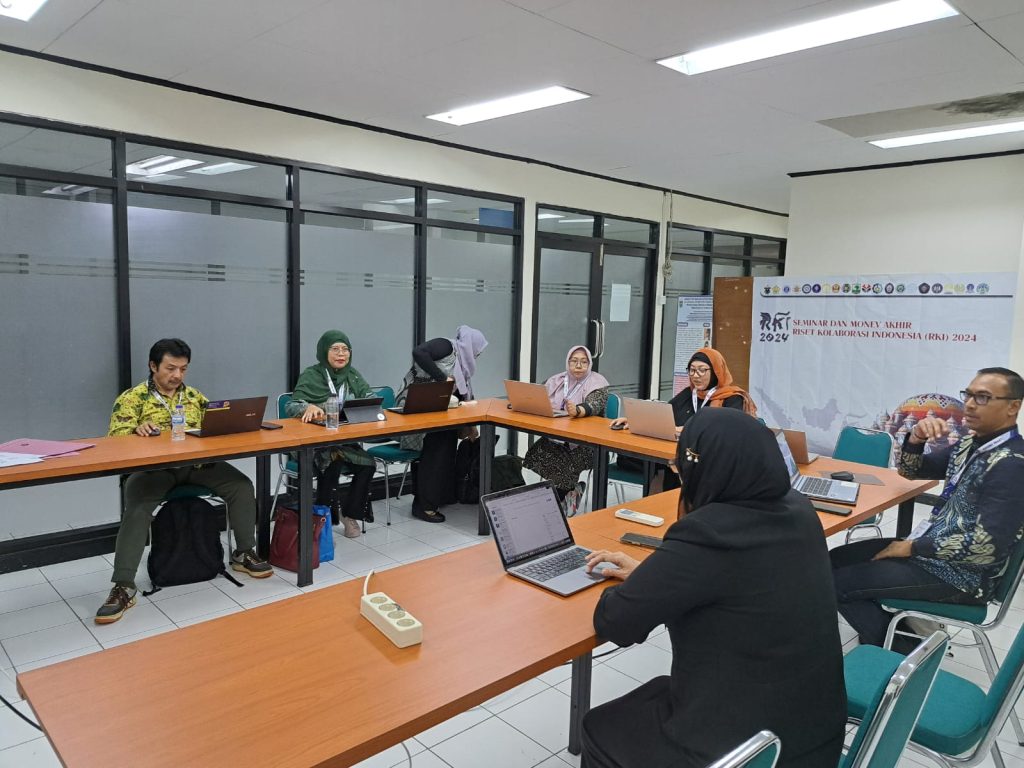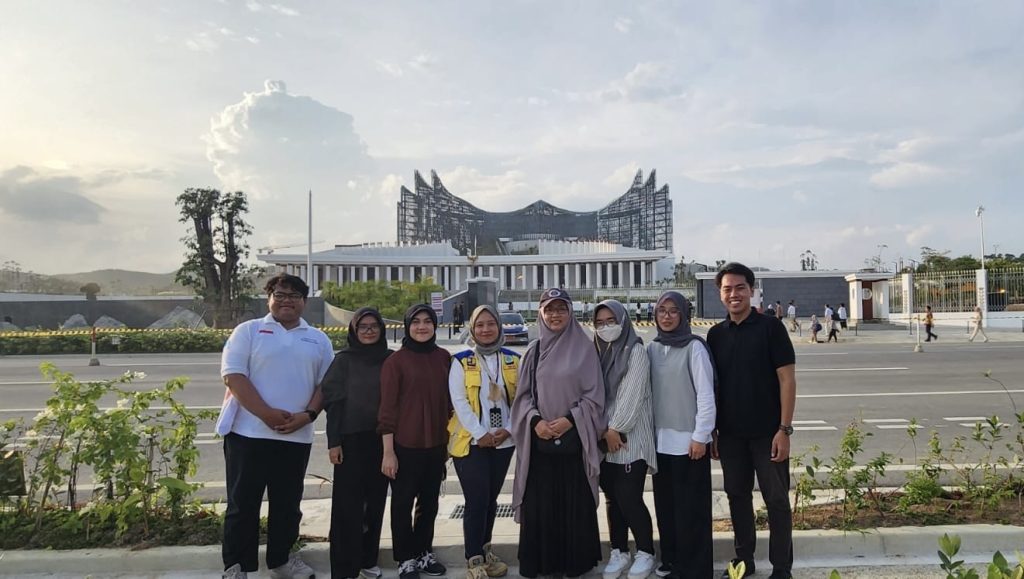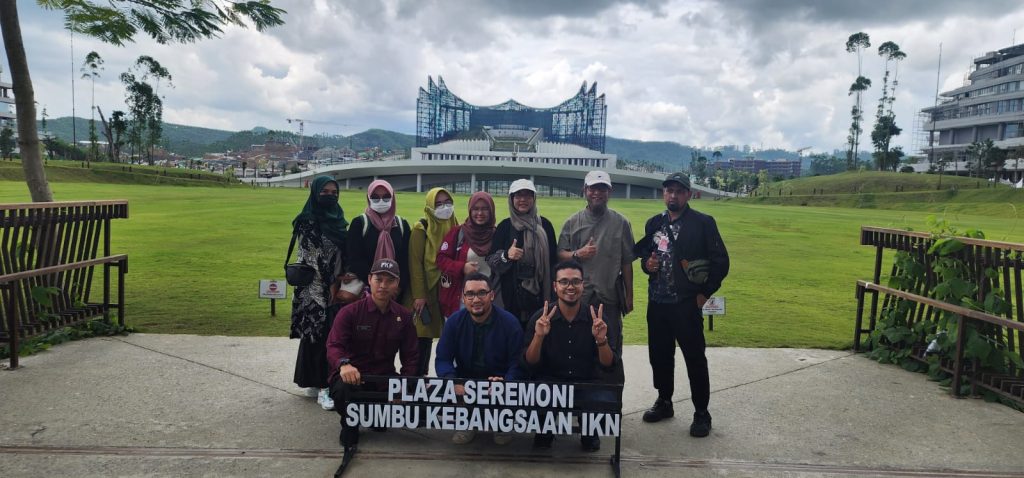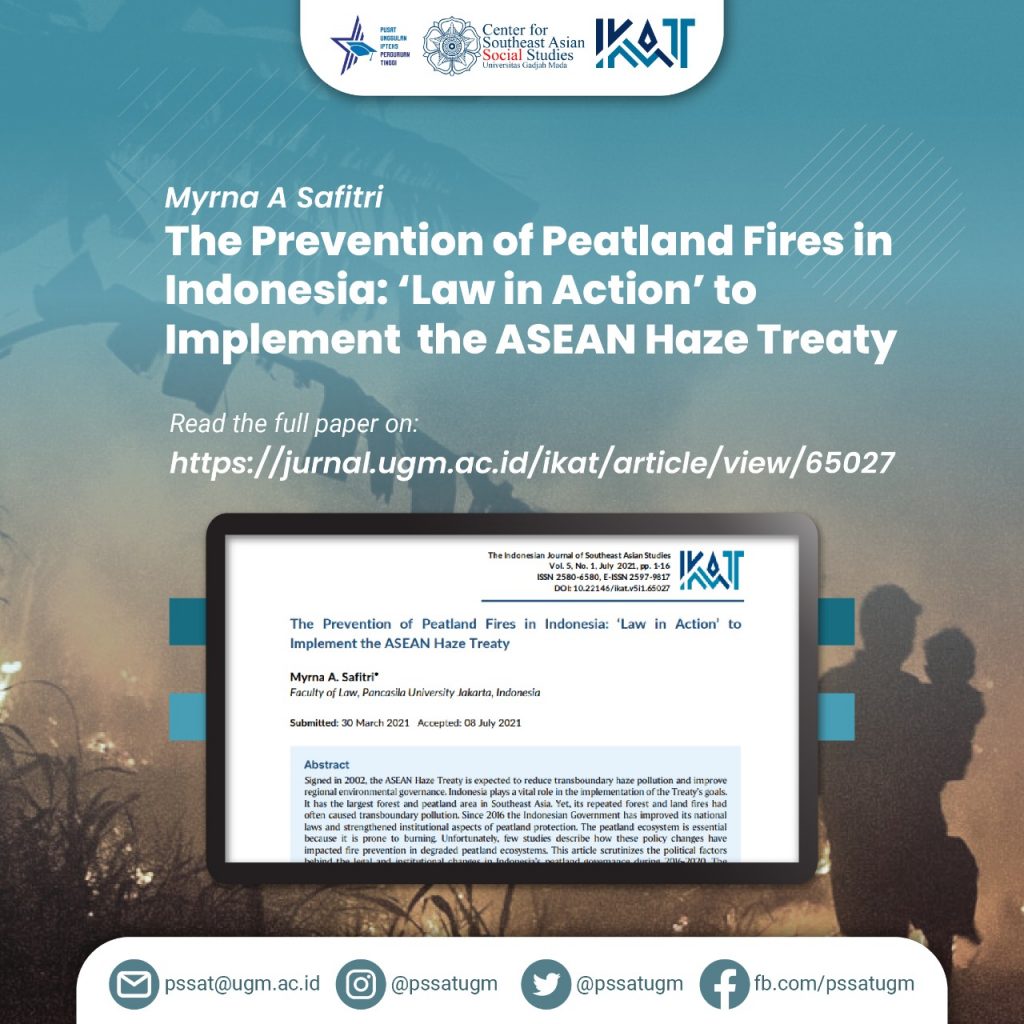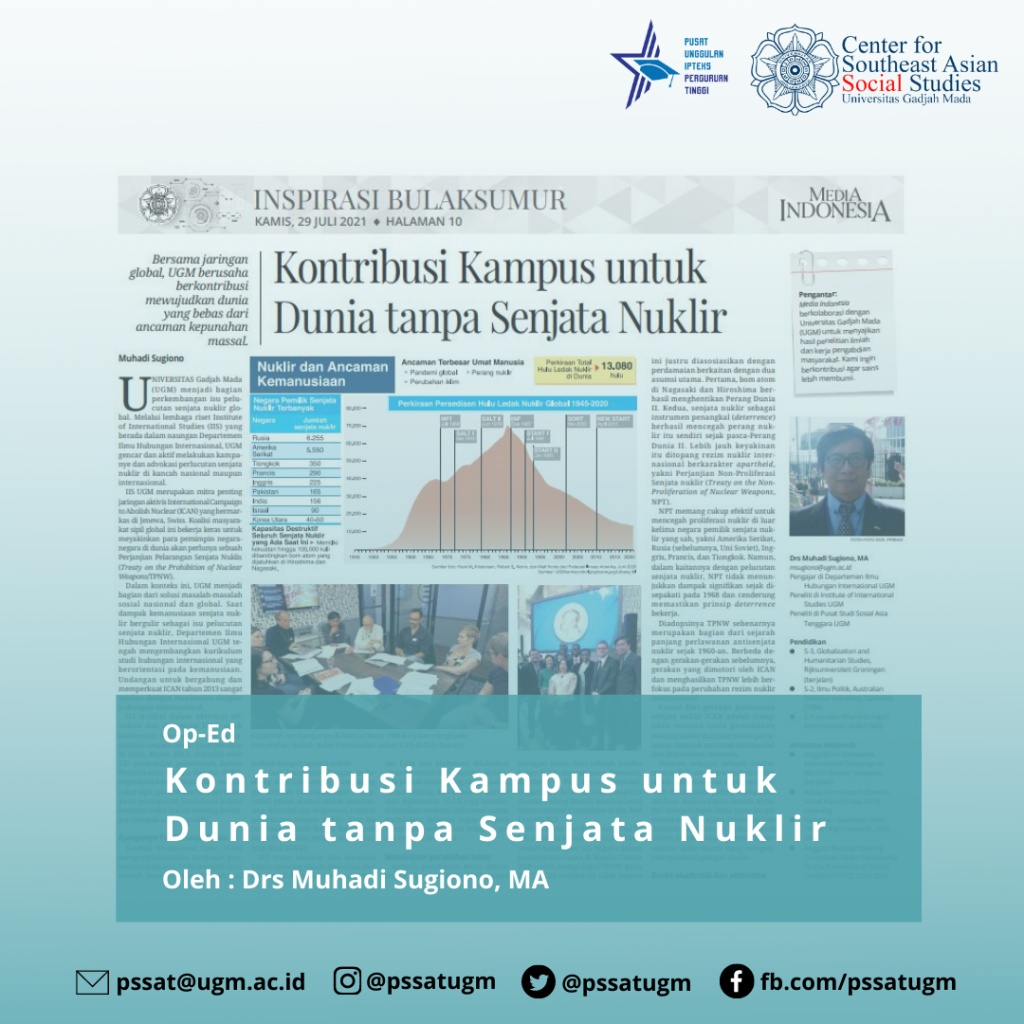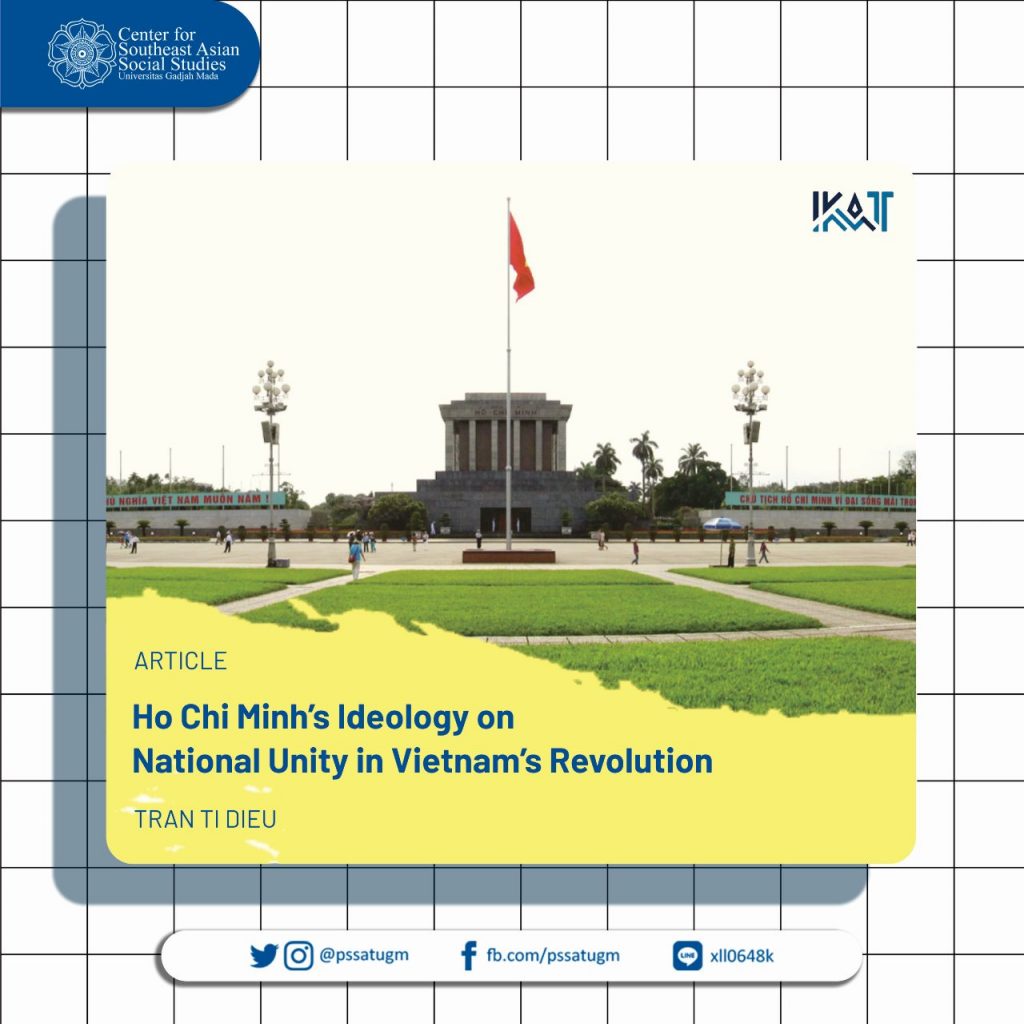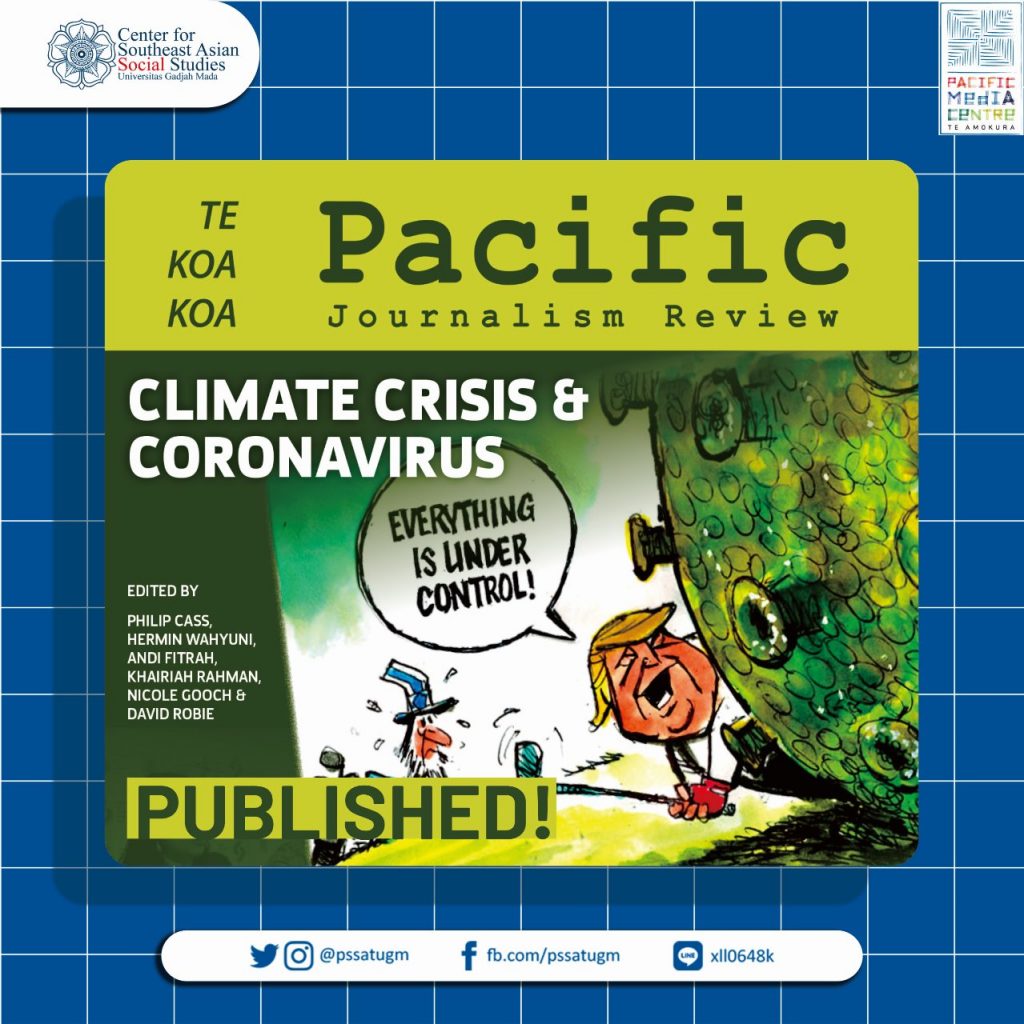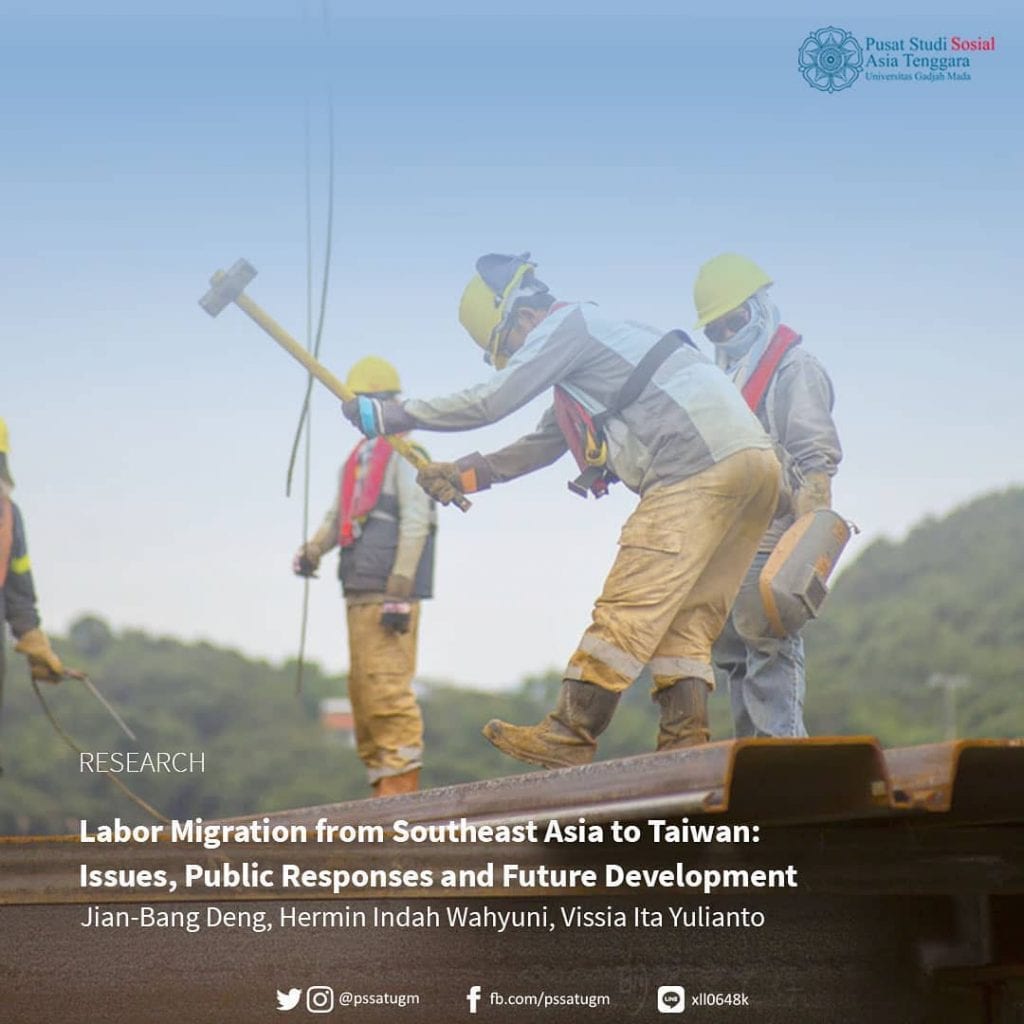Seminar and Final Monitoring-Evaluation of RKI Research Project “Creative, Innovative, and Smart Sustainable City Concept for Capital City.”
The Seminar and Final Monitoring-Evaluation (Monev) of the Indonesian Collaborative Research (Riset Kolaborasi Indonesia, RKI) for 2024 took place successfully on 5-6 November 2024 at Hasanuddin University, Makassar. The event commenced with an opening speech from the Minister of Higher Education, Science, and Technology of the Republic of Indonesia, followed by parallel monitoring and evaluation sessions.
Representing Universitas Gadjah Mada (UGM), Prof. Dr. Rini Rachmawati, S.Si., M.T., Head of the Center for Southeast Asian Social Studies (CESASS), actively participated in the seminar and Monev sessions. Prof. Rini serves as the lead researcher for the RKI project, collaborating with partner researchers from Universitas Indonesia (UI), Institut Teknologi Bandung (ITB), the National Research and Innovation Agency (BRIN), Universiti Sains Malaysia, and the University of Yangon, Myanmar.
During the event, Prof. Rini presented the research project titled “Creative, Innovative, and Smart Sustainable City Concept for Capital City.” The study emphasizes sustainable urban development strategies, combining creative and innovative approaches with smart technologies to address the challenges of developing the new capital city, Nusantara. This collaborative research underscores the significance of multidisciplinary and international cooperation in achieving sustainable urban growth.
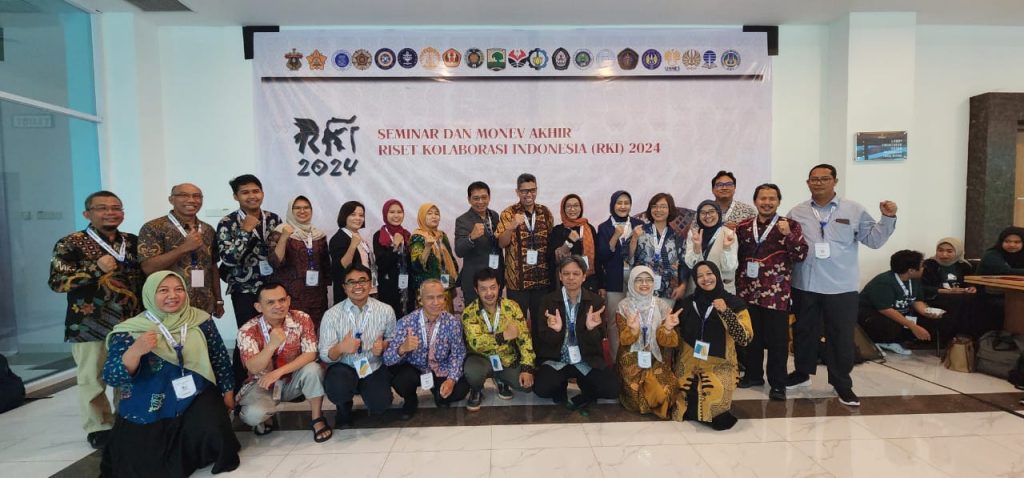
Apart from the seminar and Monev sessions, participants were invited to a field trip on 6 November 2024 to explore two significant sites in Makassar. The first destination was the Rammang-Rammang Karst Geopark, a UNESCO-recognized natural wonder renowned for its unique geological formations and biodiversity. The second stop was the CPI (Centre Point of Indonesia) area, a key development project symbolizing Makassar’s urban transformation and commitment to sustainable city planning.
The field trip provided participants with an opportunity to connect their research insights with real-world examples of urban and environmental management. Amandita Ainur Rohmah, S.Si., an RKI research assistant, also took part in both the Monev sessions and the field trip, contributing valuable support to the ongoing project.
The Seminar and Final Monev not only highlighted the progress and achievements of the RKI research but also fostered meaningful discussions among academics, policymakers, and practitioners. Through events like these, CESASS and its partners continue to advance research collaboration and contribute to innovative solutions for regional and national development challenges.
CESASS UGM Flagship Research: “Sociocultural Resilience of Society: Is It Social Polarization or Social Cohesion in the Nusantara New Capital City of Indonesia?”
We are pleased to provide an update on the CESASS UGM Flagship research project, titled “Sociocultural Resilience of Society: Is It Social Polarization or Social Cohesion in the Nusantara New Capital City of Indonesia?”, lead by Prof. Dr. Rini Rachmawati, S.Si, M.T., held from October 24 to 28, 2024, in East Kalimantan.
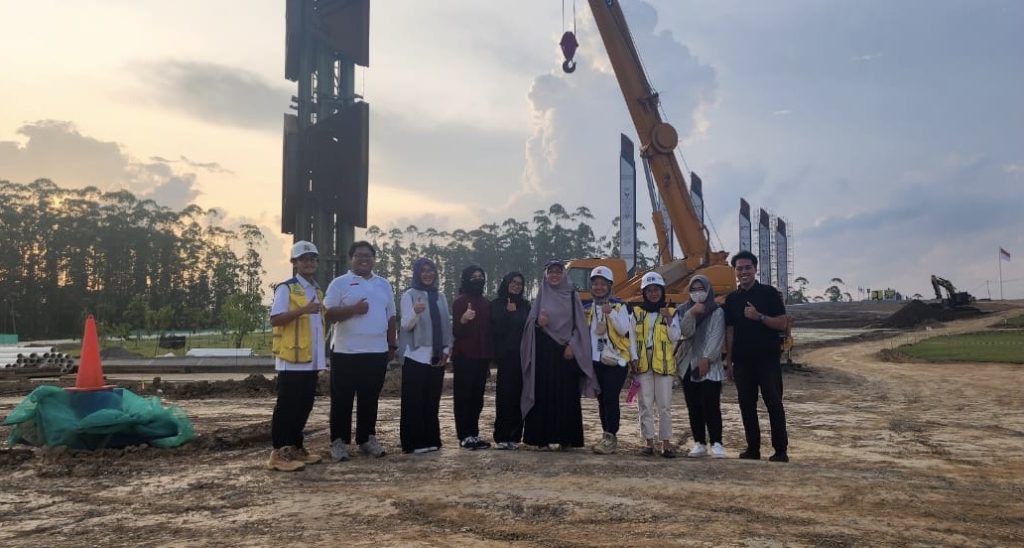
The research activities included observations, structured interviews with community members, in-depth interviews with representatives from the Social Service and the OIKN, as well as discussions with village and sub-district officials. Focus Group Discussions (FGDs) were held with village heads and traditional leaders. The research locations encompassed the Central Government Core Area (KIPP), the IKN Area (KIKN), and the IKN Development Area (KPIKN).
On the first day of observations, assistance was provided by the PKP I and PPPW II Working Units, as well as the KemenPUPR hall of East Kalimantan Province.
The research team for this initiative consists of the following members:
- Team Leader: Prof. Dr. Rini Rachmawati, S.Si., M.T.
- Team Member: Prof. Dr. Wahyudi Kumorotomo, M.P.P.
- Research Assistants: Amandita ‘Ainur Rohmah, S.Si., M.Sc. Nurina Aulia Haris, M.A. and Mellinia Ananda, M.Sc.
- Surveyors: Anindya Puteri Eka Susilowati, S.Si. Tria Sofie, S.Si. Prananta Radika, S.Si. Kunastya Mulya Pinta Ramadhan, S.Si.
“Carbon Capture and Storage Strategy: Opportunities and Prospects in the Nusantara Capital City for Achieving Smart City” Research Update
We are pleased to provide an update on the fundamental research project titled “Carbon Capture and Storage Strategy: Opportunities and Prospects in the Nusantara Capital City for Achieving Smart City,” led by Prof. Dr. Rini Rachmawati. The research activities were conducted from October 1 to 6, 2024, in East Kalimantan.
The project followed several crucial steps. First, in-depth interviews were carried out both online and on-site with key representatives from the Authority of the New Capital (OIKN) in Balikpapan. These included discussions with the Deputy for Planning and Land Affairs, the Deputy for Social, Cultural, and Community Empowerment, as well as the Director of Forest Area and Water Resources Development.
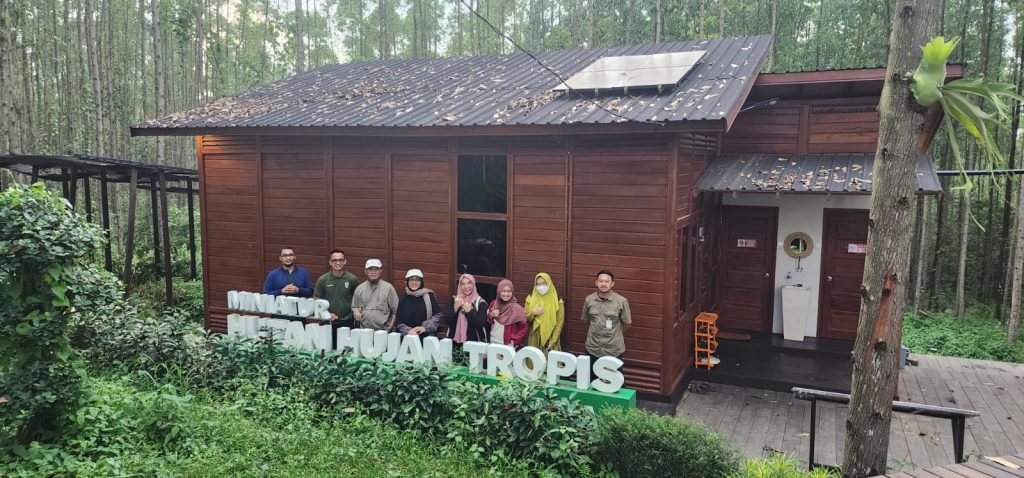
Field observations were then conducted at various locations within the Core Government Area (KIPP), with support from the OIKN team and the Ministry of Public Works and Housing Task Force for IKN. Key sites visited included the Nusantara Technology House, Plaza Ceremony, Kusuma Bangsa Park, the ASN Apartments, the Detached Official Residences for Ministers, Wanagama Forest, and the Tropical Rainforest Miniature. Additionally, drone-assisted data collection was performed, supported by the Regional Development Planning Agency (Bappeda) of Penajam Paser Utara Regency.
Primary data collection formed an essential part of the activities, including vegetation measurements and the collection of 12 soil samples, which will undergo laboratory testing. Furthermore, data was gathered from various government agencies in the Penajam Paser Utara Regency and Kutai Kartanegara Regency.
The research team for this activity included:
- Team Leader: Prof. Dr. Rini Rachmawati
- Team Members: Prof. Dr. Eko Haryono and Dr. Andung Bayu Sekaranom
- Partner Researchers: Prof. Yves Boquet from the University of Bourgogne and Prof. Jon Lovett from the University of Leeds
- Research Assistants: Hafidz Wibisono, S.T., M.T., Ph.D., Amandita ‘Ainur Rohmah, S.Si., M.Sc., Nurina Aulia Haris, M.A., Hanindha Pradipa, S.Si., M.Env., and Vanisa Anggreta Sari, S.S.
The Prevention of Peatland Fires in Indonesia: ‘Law in Action’ to Implement the ASEAN Haze Treaty
The Indonesian Journal of Southeast Asian Studies (IKAT) just published the new article written by Myrna A Safitri from the Faculty of Law Pancasila University Jakarta. This journal brings on The Prevention of Peatland Fires in Indonesia: ‘Law in Action’ to Implement the ASEAN Haze Treaty as its title.
This journal calls attention to Indonesia that carries a vital role in the implementation of the ASEAN Haze Treaty, signed in 2002. The ASEAN Haze Treaty is expected to reduce transboundary haze pollution and improve regional environmental governance. The Indonesian government has improved its regulation and strengthened institutional aspects of peatland protection. However, few studies appointed that these policy changes have impacted fire prevention in degraded peatland ecosystems. Based on the issues, this article would examine the political factors behind the legal and institutional changes in Indonesia’s peatland governance during 2016-2020. It is known that there are six predominant factors in peatland law improvement: strong leadership, improved coordination at the national and sub-national levels, making operational directives, establishing a specialized Government institution dealing with peatland restoration, law enforcement, and the strength of civil society in doing public oversight.
Read the full article in the IKAT, The Indonesian Journal of Southeast Asian Studies that could be accessed in the link below:
https://jurnal.ugm.ac.id/ikat/article/view/65027
Kontribusi Kampus untuk Dunia tanpa Senjata Nuklir
An Op-Ed for Media Indonesia in Inspirasi Bulaksumur rubric just published last week (2021/07/29) written by Drs Muhadi Sugiono, MA (Department of International Relation UGM Lecturer, Institute of International Studies UGM and Center for Southeast Asian Social Studies UGM researcher). This Op-Ed calls attention to the role of Higher Education to contribute to the issue of global nuclear disarmament. Through the Institute of International Studies (IIS) research institute, UGM is actively campaigning and advocating for nuclear disarmament on the national and international levels.
Muhadi wrote about ‘Kontribusi Kampus untuk Dunia tanpa Senjata Nuklir’ or ‘University Contribution for a World without Nuclear Weapons’ in English, mentioning IIS UGM is an important partner of the International Campaign to Abolish Nuclear (ICAN), an organization based in Geneva, Switzerland. This global coalition works to monitor the full implementation of the Treaty on the Prohibition of Nuclear Weapons (TPNW). In this context according to Muhadi, UGM as Higher Education Institution is taking part of the solution to national and global social problems.
Full article could be accessed in E-Paper of Media Indonesia : https://epaper.mediaindonesia.com/detail/kontribusi-kampus-untuk-dunia-tanpa-senjata-nuklir
Ho Chi Minh’s Ideology on National Unity in Vietnam’s Revolution
For those who want to learn more about our neighbouring country Vietnam. See more here on its ideology by a Vietnamese scholar Tran Ti Dieu here in IKAT current issue: https://jurnal.ugm.ac.id/ikat/article/view/56279
Climate Crisis and Coronavirus: Rethinking The Social World
Climate crisis and the Covid 19 outbreak are key themes along with new research methodology strategies in the Pacific Journalism Review. This edition has been published in partnership with Center for Southeast Asian Social Studies, Universitas Gadjah Mada, Yogyakarta with several papers from “Rethinking the Social World in the 21st Century” symposium in August being published. For full edition click here https://ojs.aut.ac.nz/pacific-journalism-review/issue/view/45
Labor migration from Southeast Asia to Taiwan: issues, public responses and future development
As a part of the working collaboration between the Center for Southeast Asian Social Studies, Universitas Gadjah Mada and the Graduate Institute of Futures Studies, Tamkang University, Taiwan, A joint paper by Prof. Jian Bang Deng, Prof. Hermin Indah Wahyuni and Dr. phil. Vissia Ita Yulianto is just published. This paper calls attention to the close linkage between transnational mobility and social inequality. It showed how the transnationalization of social inequality could get new faces through the new waves of labor migration. The issue of social inequality not only reflects the policy levels of receiving and sending countries, but it also is shown in experiences of the individual labor migrants in their transnational careers.
—-
Sebagai bagian dari kolaborasi antara PSSAT UGM dan Universitas Tamkang Taiwan, telah dipublikasikan joint paper oleh Prof. Jian Bang Deng, Prof. Hermin Indah Wahyuni dan Dr. phil. Vissia Ita Yulianto. Paper ini memberikan gambaran mengenai hubungan mobilitas transnasional dan ketimpangan sosial. Dalam penelitian ini, dijabarkan bahwa transnasionalisasi dari ketimpangan sosial dapat memberikan gelombang baru isi buruh migrant. Isu ketimpangan sosial bukan hanya direfleksikan oleh kebijakan pengirim dan penerima tenaga kerja namun juga terlihat dari pengalaman yang dialami para migran saat bekerja diluar negeri.
—
Citation
Deng, J.-B., Wahyuni, H.I. and Yulianto, V.I. (2020), “Labor migration from Southeast Asia to Taiwan: issues, public responses and future development”, Asian Education and Development Studies, Vol. ahead-of-print No. ahead-of-print. https://doi.org/10.1108/AEDS-02-2019-0043
China is Coming!: The Construction and Representation of China in Indonesia
The rise of China as a global power has led to the state of panic throughout the world. Despite the insistence by its leaders of China’s ‘peaceful rise,’ fear, anxiety and even hostility toward China has widely been spread. While most analyses are focused more on the implications of the growing power of China on various aspects of power relations, less attention has been given to the way in which China is perceived in other countries. Arguably, the construction of China as a serious threat has played similarly important role in the negative responses of other countries toward the rise of China. The proposed research will fill the gap in the academic discourse on this issue by focusing the analysis on the perception on China and on the framing of its rise. In addition, by focusing on the case of Indonesia, the proposed research will not only help us better understand Indonesian policy toward China but can also be of significance for design more appropriate policy toward China. Departing from constructivist theoretical framework, the research will be conducted through examining documents and speeches, media coverage as well as interviews or focused group discussion.
This research by Muhadi Sugiono, Hermin Indah Wahyuni, and Dafri Agussalim will be conducted in collaboration with the Asean Studies Center (ASC), at Chulalongkorn University in Bangkok, Thailand.
Communication and Politics of Disaster in Indonesia: Analysis of the Multi-Layered Responses to Maritime Disaster in Semarang and Aceh
This research by Dr.phil. Hermin Indah Wahyuni, Theresia Octastefani, M.AP., M.Pol.Sc, Muhammad Rum, IMAS, and Prof. David Robie from Program Hibah Kolaboratif Internasional Fakultas ISIPOL UGM in 2018 is intended to analyse the communication and politics of disaster in Indonesia through an examination of the multi-layered responses to two maritime disasters: tidal flooding in Semarang and the threat of tsunamis in Aceh. Although these maritime disasters have different characteristics, both were destructive. While tidal flooding in Semarang has been a slow-onset disaster, tsunamis in Aceh arrive suddenly. Tidal flooding has occurred along the northern coast of Java for decades, but yet to be mitigated; in fact, it has only expanded and caused more damage. Meanwhile, the 2004 tsunami in Aceh was the largest maritime disaster ever experienced in Indonesia, killing hundreds of thousands, causing massive destruction, and creating a number of social problems that remain even today. The main vision of the Joko Widodo (Jokowi) government to reaffirm Indonesia’s status as a strong maritime country cannot be optimally realised, and may even be hindered, if these disasters cannot be addressed.
Through the cases of maritime disasters in Semarang and Aceh, this research aims to offer novel insight into measuring the performance of disaster management from a political point of view. Success tackling disaster is not merely about technicalities, but relies on an interplay of systems, i.e. communication and the politics of disaster. These systems should reinforce each other to enable social resilience. Political openness, inclusiveness, and democratisation in these systems might benefit the promotion of resilience. Meanwhile, failing to better include multi-layered stakeholders might result in a higher level of societal risk. Three aspects of communication and the politics of disaster will be examined in this research: values and norms, regulation, and the governance of disaster response.
To attain a comprehensive understanding, this research will use a qualitative approach combining several data collection procedures, including interviews, focus group discussions, simple content analysis, observation, and review of policy documents.

